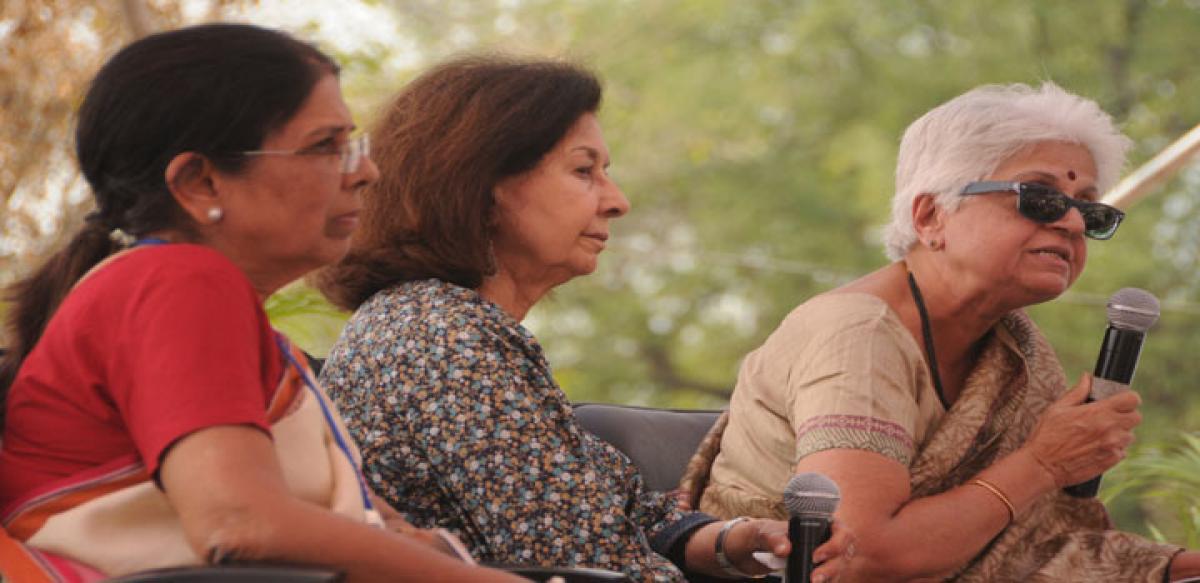Live
- Rajadhiraaj: Love. Life. Leela
- Students immerse in nature in Chilkur forest
- Sri Aurobindo’s vision: Bridging the gap for holistic human evolution
- Sri Radha Govinda Ratha Yatra conducted
- A feast of music, dance and drama
- Mohan Babu denies absconding amid legal controversy
- Swift City to boost industrial growth in Bengaluru
- Allu Arjun walks out free after spending night in jail
- Congress harbours no grudge against any actor: TPCC chief
- Allu Arjun meets Upendra after release from prison, wishes for his ‘UI’ film
Just In

Freedom of speech is always on a war path with censorship,” the panelists opined during a session on Free Speech and Censorship at HLF. Opening the discussion, moderator and noted activist Vasanth Kannabiran said that it is tricky to speak about issues of patriotic nature.
Freedom of speech is always on a war path with censorship,” the panelists opined during a session on Free Speech and Censorship at HLF. Opening the discussion, moderator and noted activist Vasanth Kannabiran said that it is tricky to speak about issues of patriotic nature.
“When women in Manipur stripped naked and challenged the Army to ‘rape us’, it came across to me as an act of rebellion and a way to protest against censorship but, many of my friends in Hyderabad said that they have gone a tad too far,” she said.
Kannabiran said that in modern times it has been increasingly difficult to fight mob censorship. “There have always been protests in the name of honour of the community, name of the dignity of culture. The IS is the biggest enemy for women’s freedom of expression.
We have lost the capacity to converse. We are writing in the time of siege and our only survival is by writing,” she added. Renowned writer Nayanatara Sahgal said that the only weapon that writers have is to write, put their travails on page.
A few years ago I was in London, where I met a writer from Sri Lanka, who had to change the ending of a story, where a married woman loves another man and leaves her husband because her (the writer’s) husband threatened to annul their marriage if she went with her idea,” she remarked.
Recounting her own experience, “In 1992, I published a correspondence between me and a man, who I later married. It was about the violence I faced. I had a quite an appreciation but, from social crowd there was antipathy; they felt that women should be confined. I feel that censorship has to be decided democratically,” she shared.
Narrating her tryst with censorship, writer and Dalit activist Urmila Pawar said, “People from Jan Sangh tried to block and ban my short story, which is about the harassment faced by three Dalit women. They dubbed my story as vulgar and campaigned hard for banning it.
It was only after students and women groups gave support that the backlash stopped.” Concurring with others, Pawar said that the only way to battle censorship is to write as much as possible.

© 2024 Hyderabad Media House Limited/The Hans India. All rights reserved. Powered by hocalwire.com







